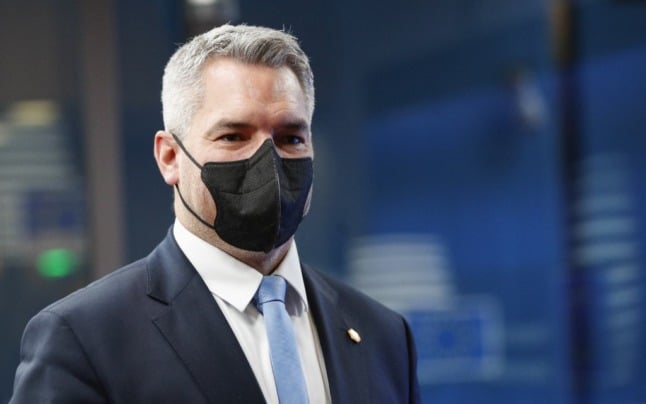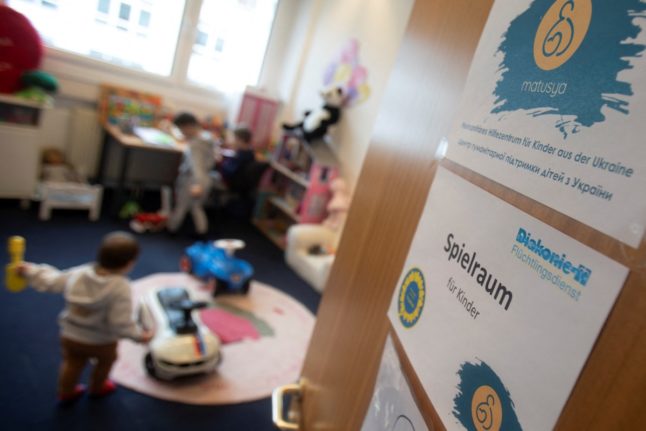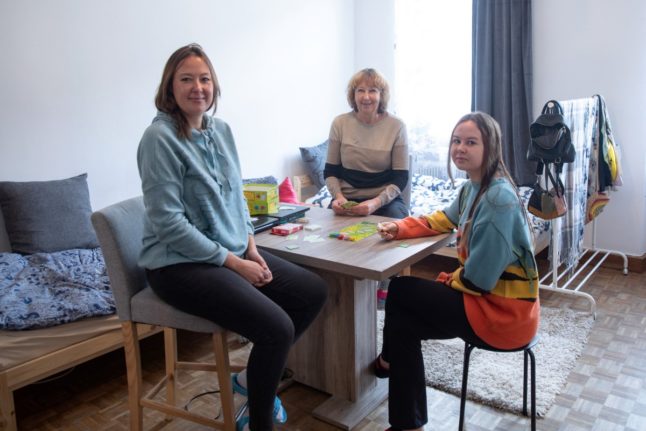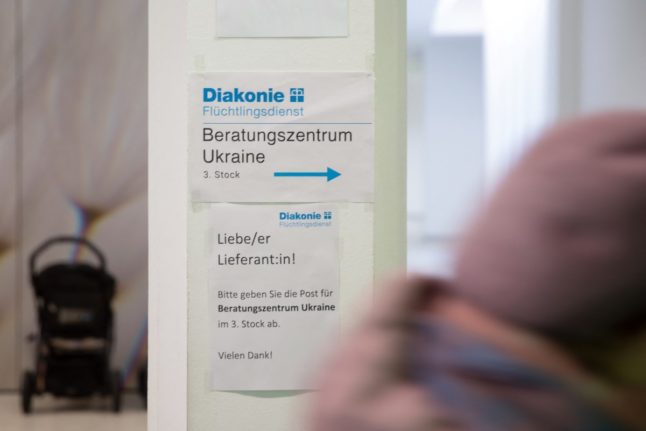Austria is supporting Ukraine in the war with Russia with humanitarian aid and technology and “not only with words”, Ukrainian president Volodymyr Zelensky said at a joint press conference on Saturday.
Nehammer (ÖVP) spoke with the Ukrainian leader in Kyiv during a “solidarity visit” and promised more support for the country’s armed forces, including rescue vehicles and fire trucks. Nehammer also promised more fuel donations and stated that sanctions against Russia would only escalate until the war stops.
READ ALSO: EXPLAINED: Why Austria won’t allow Ukraine’s Zelensky to speak before parliament
“While Ukrainian people die, there are not enough sanctions”, Nehammer said.
The ÖVP politician also asked for an international investigation of the alleged war crimes perpetrated by Russian troops.
Austria is a neutral country, and it cannot send deadly weapons or military assistance to Ukraine, but Zelensky thanked the Austrian authorities for “providing help by other means”.
Nehammer faced with hard questions
When asked why Austria wouldn’t agree to a total gas embargo against Russia, Nehammer said that the European Union measures against the country would become more targeted, reaching components of aircraft and drones.
However, the Chancellor, who has a military background, said that sanctions must affect those against whom they are directed – not those who are enforcing them.
He promised the sanctions would be the “toughest in the history of the EU” and that Austria would be a reliable partner in advocating them.
Like many other countries in Central and Eastern Europe, Austria is heavily dependent on Russia to fulfill its energy demands.
Before Russia invaded Ukraine, Elisabeth Christen, Senior Economist at the Austrian Institute of Economic Research (Wifo), told The Local that 80 per cent of Austria’s gas is imported from Russia and that most of the EU is heavily dependent on Russian gas.
READ ALSO: How reliant is Austria on Russia for energy?
The activities of the Austrian lender Raiffeisen Bank with significant exposure to Russian debt, were also questioned.
Nehammer said that the bank has many branches not only in Russia but that it is also a significant employer in Ukraine. He added that Raiffeisen “immediately supported” the sanctions against Russia and that circumvention of the measures would not be accepted in Austria.
READ ALSO: Why did Austria change policy to expel Russian diplomats?
The Austrian chancellor was the most recent of several EU heads of state to visit Ukraine. This Friday, EU commission president Ursula von der Leyen was also in Kyiv. She said that “Ukraine belongs with the European family”.
Your fight is our fight. Europe is on your side.
This is the message I brought to President @ZelenskyyUa and the Ukrainian people yesterday in Kyiv. pic.twitter.com/UvWtm26Iww
— Ursula von der Leyen (@vonderleyen) April 9, 2022
Zelensky stated that the solidarity visits are a “beautiful signal” that the world stands with Ukraine.





 Please whitelist us to continue reading.
Please whitelist us to continue reading.
Member comments